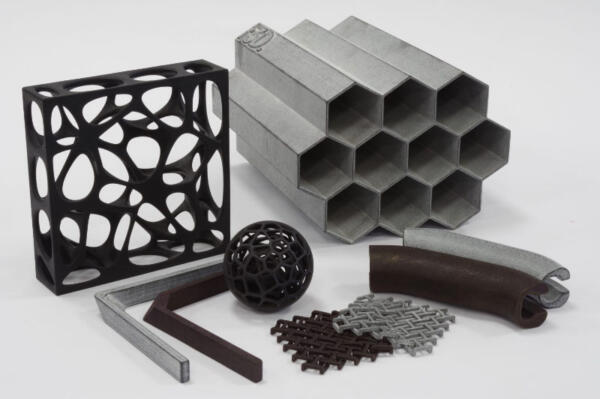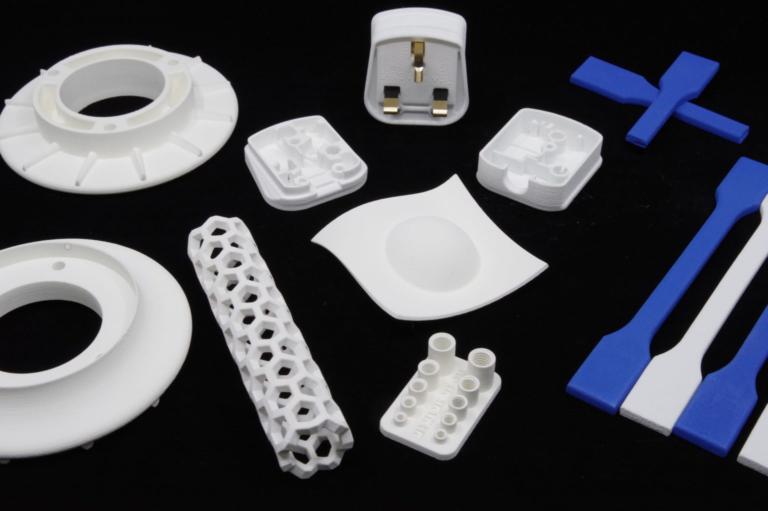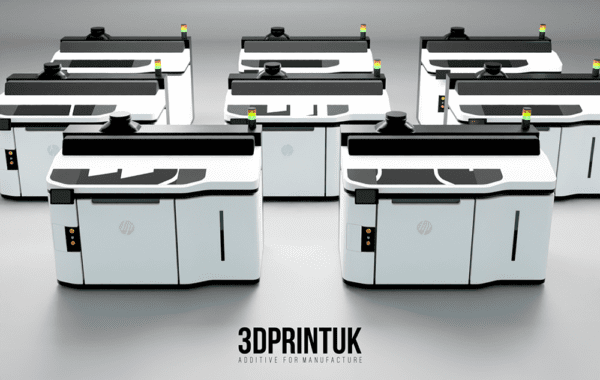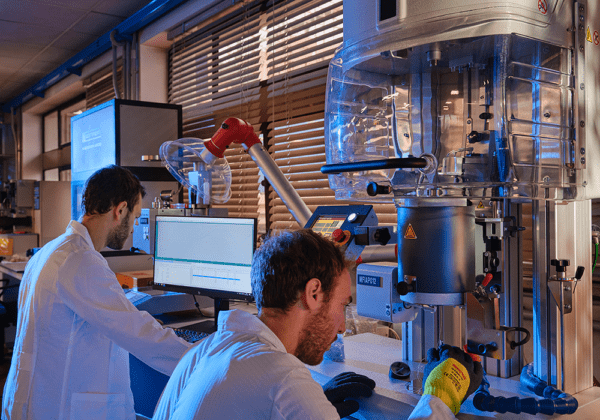
Selecting the Best Material is Certainly Not Immaterial
Selecting the best material is crucial in order to realise the true potential of 3D printing in manufacturing. That’s the message from Ricoh 3D’s materials specialist, Enrico Gallino.
Enrico Gallino, who is a Doctor in Material Science, has watched as additive manufacturing has gathered momentum in the industry over the last ten years. Powder bed fusion technologies such as selective laser sintering (SLS), multi-jet fusion (MJF) and high-speed sintering (HSS) are at the forefront of bringing 3D printing into serial production.
However, when it comes to materials, most manufacturers are still using polyamides such as Nylon 12 as they offer good processability and balance between mechanical properties and thermal resistance.

Enrico said: “I think of PA12 as vanilla ice cream. For some products and parts, it’s a good material choice. Still, one material simply cannot be the solution to everything – and never will – especially if you are looking at additive manufacturing for serial production. There is a greater range of options out there than ever before.

“At Ricoh 3D, in addition to Nylon 12 for the multi-jet fusion process, we offer a vast range of materials with diverse mechanical and thermal properties.”
Enrico continues that when flexibility and water resistance is required, Polypropylene is likely to be a superior option.
Ricoh’s industry-leading Polypropylene is lightweight, fatigue-resistant and boasts WRAS approval and complete recyclability. It is also chemical resistant and offers extremely high elongation at break, making it perfectly suited to applications including functional prototypes for snap-fit, automotive assemblies or living hinges, packaging and consumer goods.
Enrico added: “I visit businesses of all sizes, and it’s clear that there are different levels of knowledge and awareness in the marketplace. Some people are well versed in AM, but mostly it’s a case of manufacturers not being aware of the range of materials and technologies available for 3D printing.
“It’s our job to help raise awareness and open people’s eyes. Our advice would be to speak to the experts to get the best support and advice for each project, as every AM opportunity is different.”
Ricoh was a pioneer in using Polypropylene in additive manufacturing and is currently embarking on performance testing to prove the strength of the material over long periods.
“We want to prove the long-term durability of the material, so we have partnered with the French mechanical engineering company, Mecastyle,” said Enrico. “Polypropylene has currently been successfully tested up to one million cycles of fatigue and tests are ongoing.
“On the other hand, if you are looking for materials with higher mechanical strength and superior thermal stability, we also offer Nylon 6-based options: an unfilled version and one filled with glass bead which provides even more stiffness, strength and stability under load at higher temperatures.
“Those materials can operate at temperatures above 180°C and are a great choice for automotive applications as they exhibit very good resistance to fluids such as oils, greases and fuel.”
Ricoh has also recently announced a landmark partnership with 3D material solutions innovator, TIGER, to make thermoset materials available for selective laser sintering.

The breakthrough move combines TIGER’s specialist materials portfolio with Ricoh’s print expertise to provide an end-to-end AM service.
Thermoset materials remain in a permanent solid-state, demonstrating outstanding isotropic performance. They can be used to create flame retardant parts that, unlike thermoplastics, offer self-extinguishing behaviour, low smoke formation and no polymer melt-dripping.
These characteristics make thermoset a game-changer for industries such as electrical, rail, automotive and aerospace where most, if not all, components must be fire-proof.
Ricoh is a true end-to-end manufacturer, taking products through their full development cycle – whether it’s one or one million parts. For more information, visit rapidfab.ricoh-europe.com/
![]()
Ricoh AM
01604 814900
Website
Email





